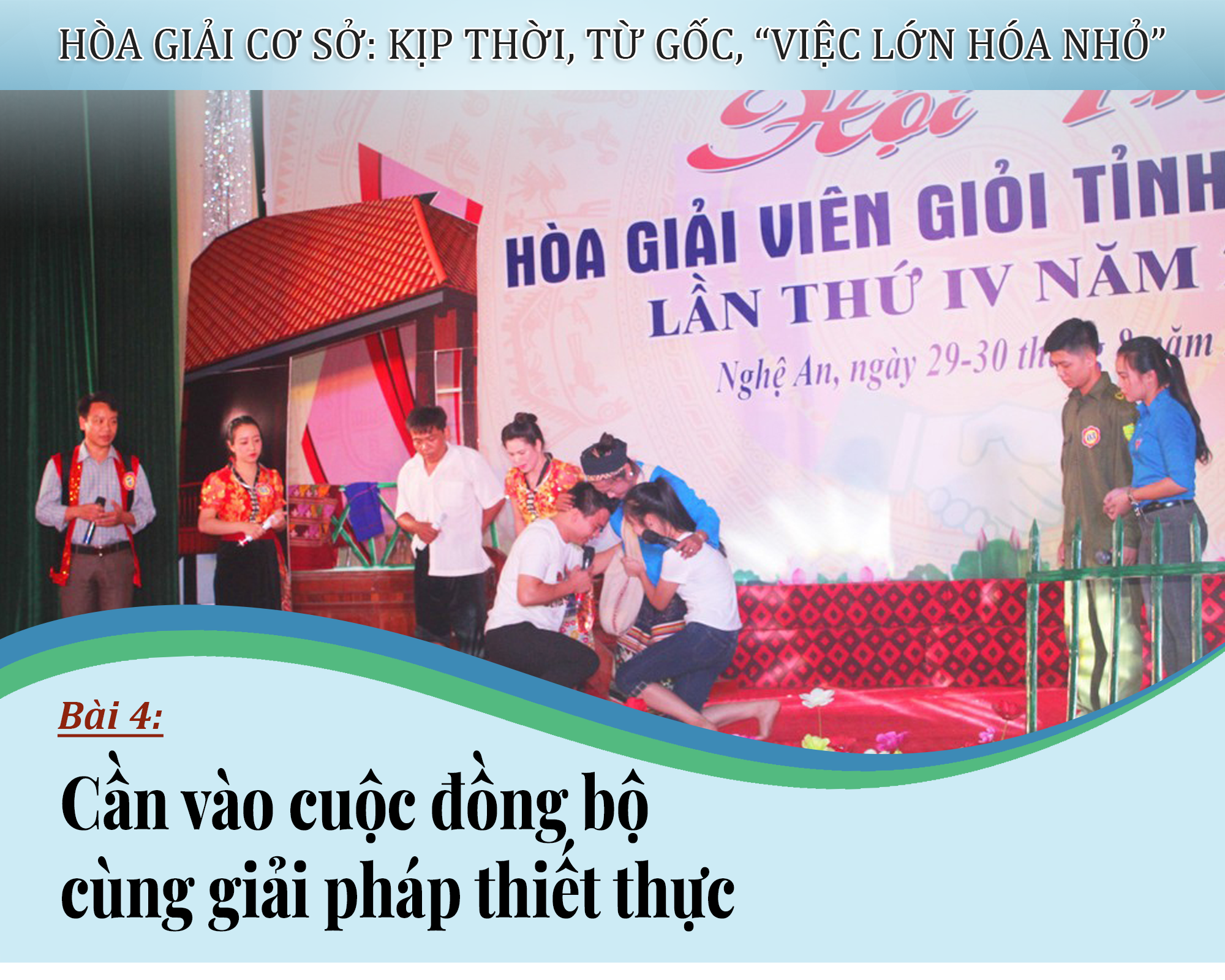
Conflicts within families, clans, neighborhoods, etc., if resolved at an early stage, will limit the emergence of “hot spots” of security and order in the community. Timeliness, right at the source, shows the important role of grassroots mediation in the community. However, to improve the quality of grassroots mediation, the participation of the entire political system with synchronous solutions is needed.…


18 years as a Party cell secretary is also the same number of years that Mr. Le Dinh Que in Hai Bac hamlet, Dien Bich commune (Dien Chau) has been involved in mediation work. The hamlet has 336 households, 1,400 people, a coastal area with limited land and a large population, so disputes and conflicts occasionally arise between neighbors, and the mediation team must act as a timely mediator. According to Mr. Que: The success of mediation at the grassroots level depends on the enthusiasm, dedication, solidarity, and unanimity of the members of the mediation team for peace and great unity in the hamlet. The mediators themselves, in addition to enthusiasm, must have certain experience, skills, methods, knowledge, and most importantly, must have prestige, not be afraid of conflicts, and know how to "skillfully mobilize the people" to receive the support and trust of the people. Many cases show that if the neighborhood mediation team does not grasp and intervene promptly, "waiting until there is a petition" or a request for mediation before resolving it, then it is very easy for major conflicts to arise.
Also agreeing with the view that "the quality of grassroots mediation depends on the quality of the mediator team, to increase the rate of successful mediation, first of all, we must improve the quality of the mediator team"; however, Mr. Nguyen Van Mai, Head of the Front Work Committee, Head of the Mediation Team of Hamlet 5, Tan Son Commune, Do Luong District, said that, in addition to the efforts of the mediators, there must be attention and support from the Party Committee, the entire political system and specialized officials such as the judiciary and cadastral officials. Because there are complicated cases such as those related to land disputes, the mediation team must go to the field, research on cadastral maps, compare the red books of the parties, consult with experts, and then determine how to resolve them to the satisfaction of all parties.
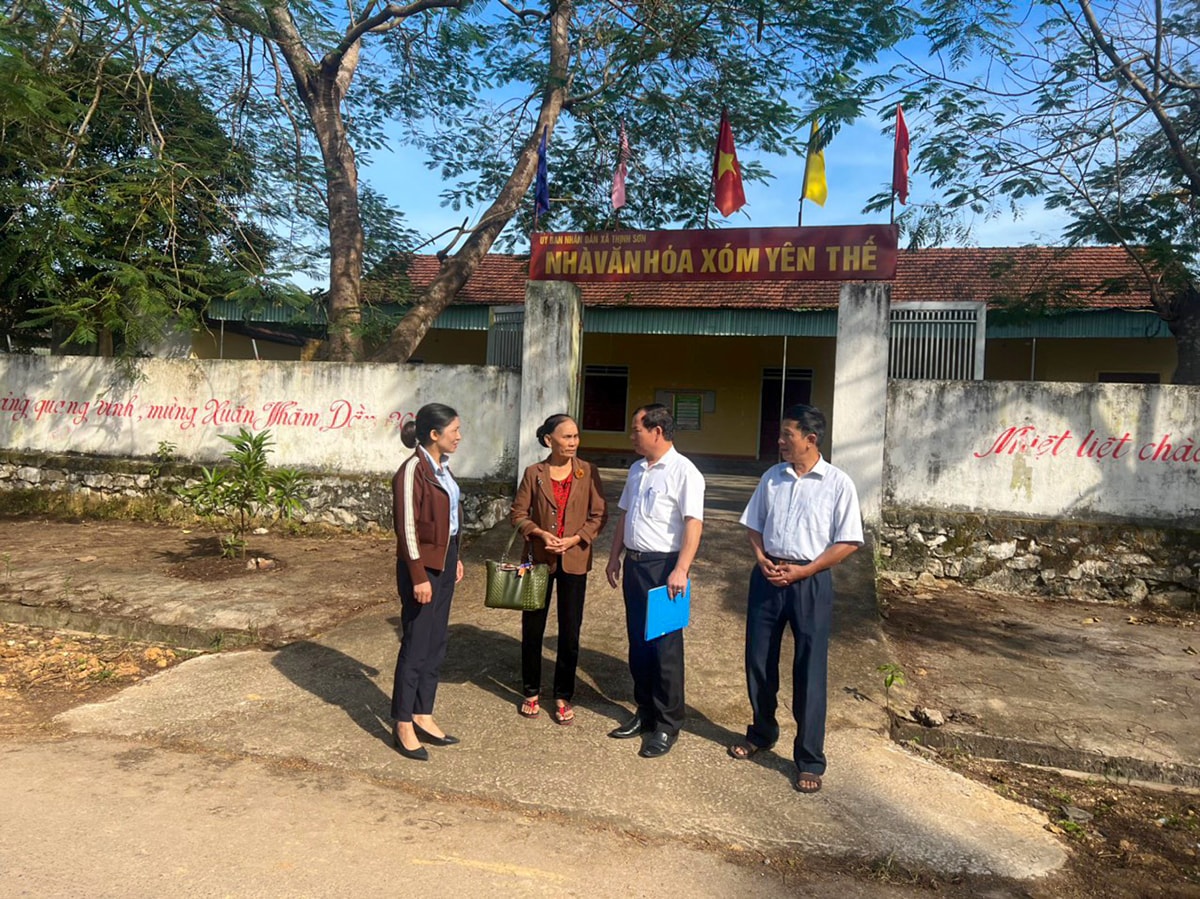
According to Mr. Nguyen Hong Phi - Head of the Justice Department of Anh Son District People's Committee: To increase the rate of successful mediation, first of all, there must be mediators who know how to "mobilize people well", have good knowledge of the law, have experience, skills, and prestige with the people. Currently, in Anh Son district, there are 155 mediation teams with 1,021 mediators, of which men account for 70.7% (722 people) and 29.2% are women (299 people); ethnic minorities have 94 people, accounting for 0.92% of the total number of mediators.
Recognizing the importance of mediation activities, the People's Committee of Anh Son district issued Directive No. 08-CT/UBND on strengthening the dissemination of legal education and grassroots mediation work in the district. At the same time, it directed, urged and guided the commune-level authorities to focus on organizing and perfecting the mediation team. In which, improving the professional capacity, expertise and mediation skills at the grassroots level for the team of mediators is one of the timely and necessary requirements. In addition, to promptly rectify and overcome the shortcomings and limitations of this work, every year the District Council for Coordinating the Dissemination and Education of Law has advised on developing plans and establishing inspection teams to implement grassroots mediation work in 21 communes and towns. After the inspection, a conclusion notice is sent to the inspected units, promptly evaluating and praising the units that have done well, and at the same time requesting the units that have not done well to take corrective measures to overcome the shortcomings that the inspection team has pointed out. Thereby, helping the grassroots mediation work to achieve better and better results; the successful mediation rate is from 78.7% or more.
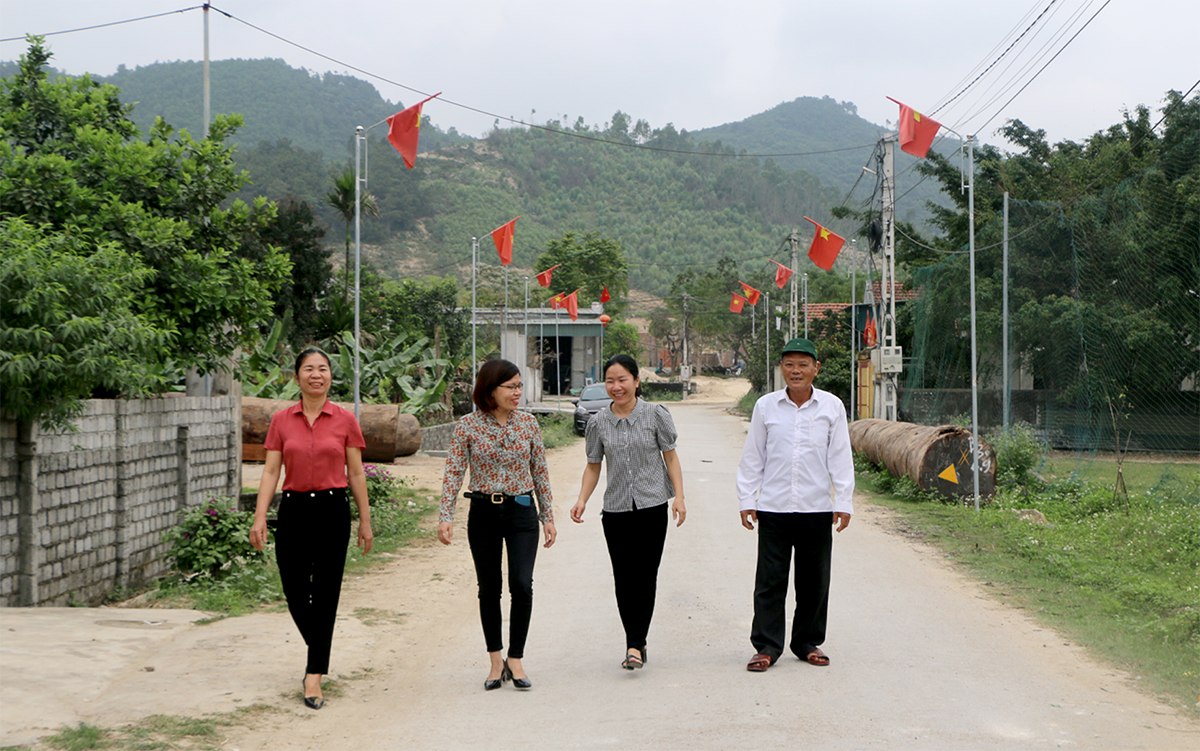
Concerned about the training work, Mr. Vo Dinh An - Head of the Hamlet, Head of the Chau Que Hamlet Mediation Team, Chau Dinh Commune, Quy Hop District, suggested: The team of mediators at the grassroots level are mainly people who "carry the prison and" the hamlet, working mainly based on experience. Therefore, to improve the skills and expertise of this team, in the training work, it is necessary to provide typical situations and cases (land, construction, environmental, marriage and family disputes, etc.) for the training participants to share experiences, exchange and discuss views, ways to handle and resolve situations. On that basis, the lecturers will comment and evaluate, adding skills and experience to the mediators. In addition, it is advisable to take a number of cases that the grassroots mediation teams are receiving, to analyze, propose solutions, advise on the contents of legal regulations and take steps to mediate the case to achieve high efficiency. “Creating interaction with each other will help the training session achieve quality, helping mediators master knowledge and experience in mediation,” Mr. Vo Dinh An emphasized.
Mr. Nguyen Xuan Mai - Deputy Head of the Justice Department of Do Luong District People's Committee said: We should focus on increasing the application of information technology in training, coaching, and capacity building for the team of mediators at the grassroots level (publishing electronic documents, establishing Zalo and Facebook groups... to exchange and discuss knowledge, expertise, and experience between trainers and mediators and between mediators.
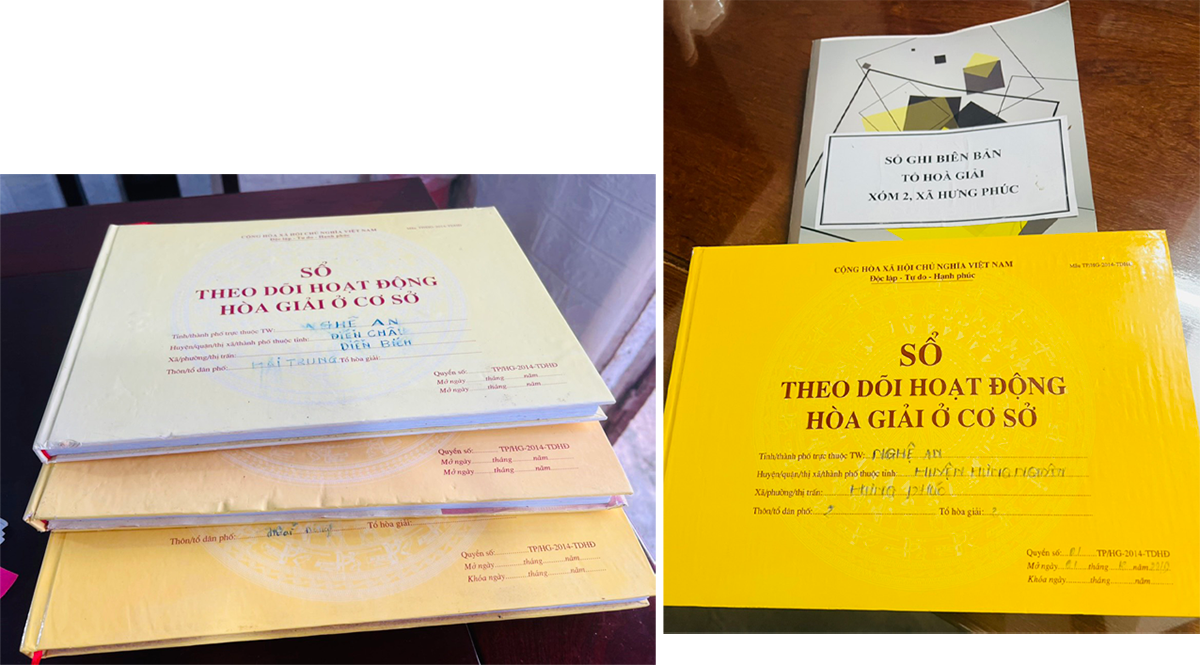


A mediator is a person who works for the benefit of the community, mainly on a voluntary basis. Although it is said to be "voluntary", in the conditions of merging villages, large areas, and large populations, Party committees and authorities at all levels need to have timely encouragement and motivation, and pay attention to resolving remuneration policies for those who do mediation work.
According to Mr. Hoang Quyen - Chairman of the People's Committee of Anh Son district: One of the factors that positively affects the results of mediation work is the attention to implementing the remuneration payment regime for mediators according to regulations. In Anh Son area, many commune-level units have regularly supported funds from the state budget for mediation work at the grassroots level, typically the communes: Binh Son, Thanh Son, Dinh Son, Duc Son, Long Son and Tao Son. This is the responsibility of the local government, a timely source of encouragement for mediation teams and mediators, gradually encouraging enthusiasm and eagerness in the process of implementing mediation work, creating peace of mind and excitement for each mediator.
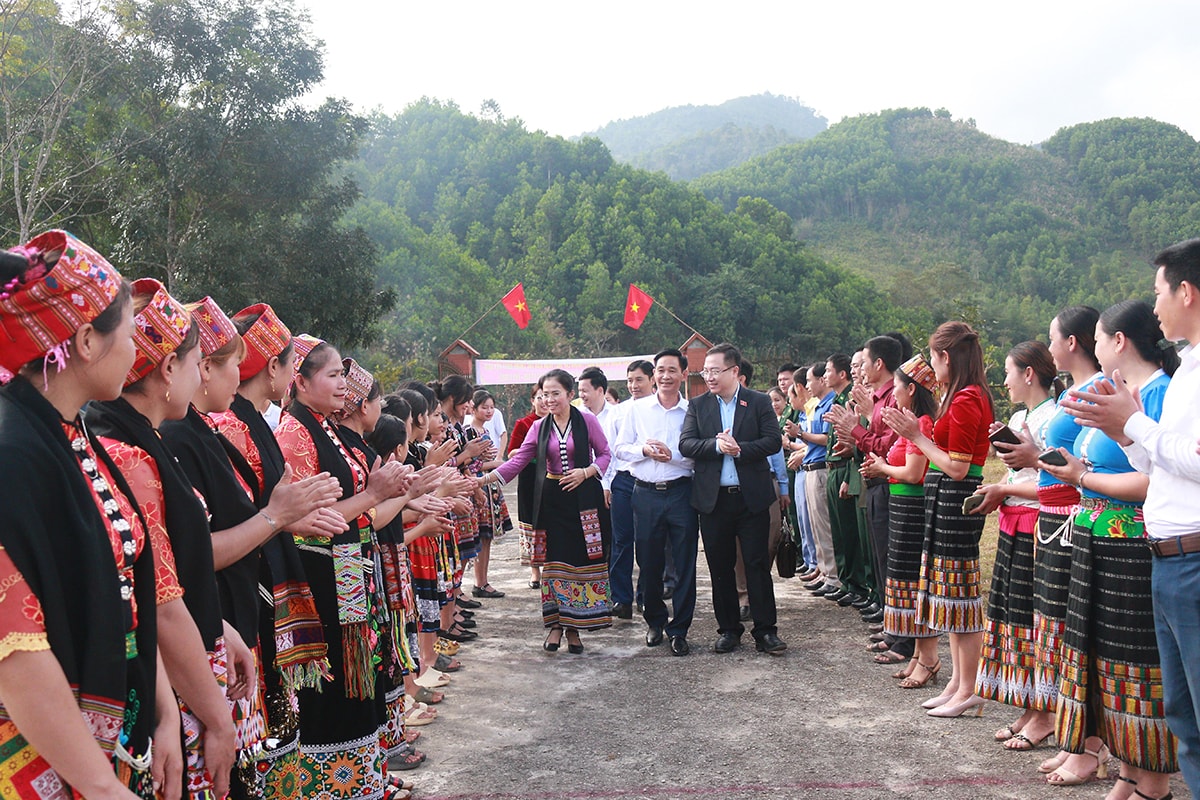
Discussing the settlement of remuneration for those working in mediation, Mr. Le Ba Thieu - Head of the Department of Dissemination and Legal Education (Department of Justice) said: No one other than the Justice - Civil Status officials must promote their role as focal points, advising commune-level leaders to pay attention to implementing well the policies, regimes, and appropriate remuneration according to the provisions of the Law on Mediation at the grassroots level and the Joint Circular of the Ministry of Justice and the Ministry of Finance, proactively ensuring funding sources from the state budget on the basis of making estimates from the beginning of the year to ensure proactiveness, stability, and encouragement for the team of mediators to be enthusiastic and dedicated in their work.
Mr. Vy Hoang Ha - Head of the Justice Department of the People's Committee of Quy Hop district proposed: In the annual commune budget expenditure estimate, there should be a bullet point to arrange a budget expenditure item, clearly stating: Expenses for mediation work at the grassroots level; only then can we hope to have funds to settle remuneration as well as invest in facilities for mediation work, but as it is now, it is very difficult.
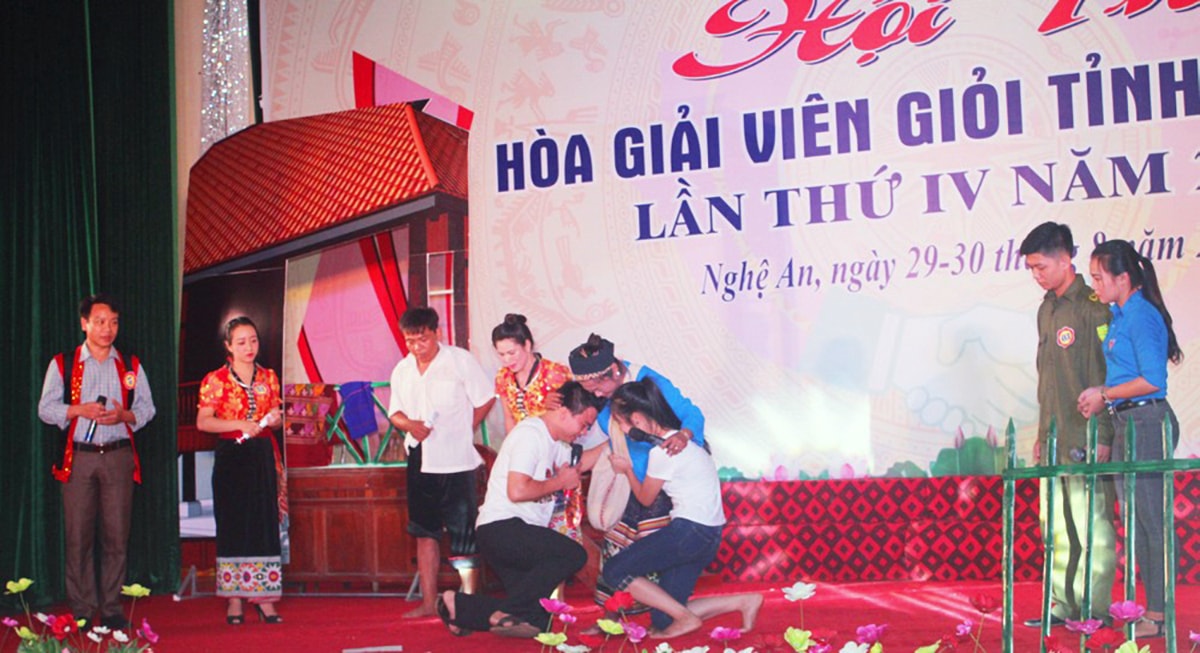
At the end of 2022, the Ministry of Finance has started to collect public comments on the draft Circular amending and supplementing Joint Circular No. 100/2014/TTLT-BTC-BTP of the Minister of Finance and the Minister of Justice regulating the preparation of estimates, management, use and settlement of state budget funds for mediation work at the grassroots level. Accordingly, the draft proposes to increase the remuneration for mediators performing mediation work at the grassroots level. Remuneration for mediators (for mediators directly participating in mediation cases): The maximum payment is 300,000 VND instead of 200,000 VND/case/work according to current regulations. The draft supplements the regulation: In case the case/work is successfully mediated according to Article 24 of the Law on Mediation at the grassroots level: The maximum payment is 400,000 VND/case/work. This is a welcome sign that grassroots mediation work and the role of mediators are increasingly valued.

The practice of mediation at the grassroots level is not simply a method of resolving disputes and conflicts, but the effectiveness of this work is the sustainable value for stabilizing political security, social order and safety, and building a great national unity bloc. The results of mediation at the grassroots level will not have a winner or a loser, but both sides will achieve their certain wishes, sometimes just an apology has resolved and mended the conflict in the direction of "nine for ten"; avoiding "unfortunately in court", "one life of lawsuit, nine lives of enmity" as our ancestors used to remind.
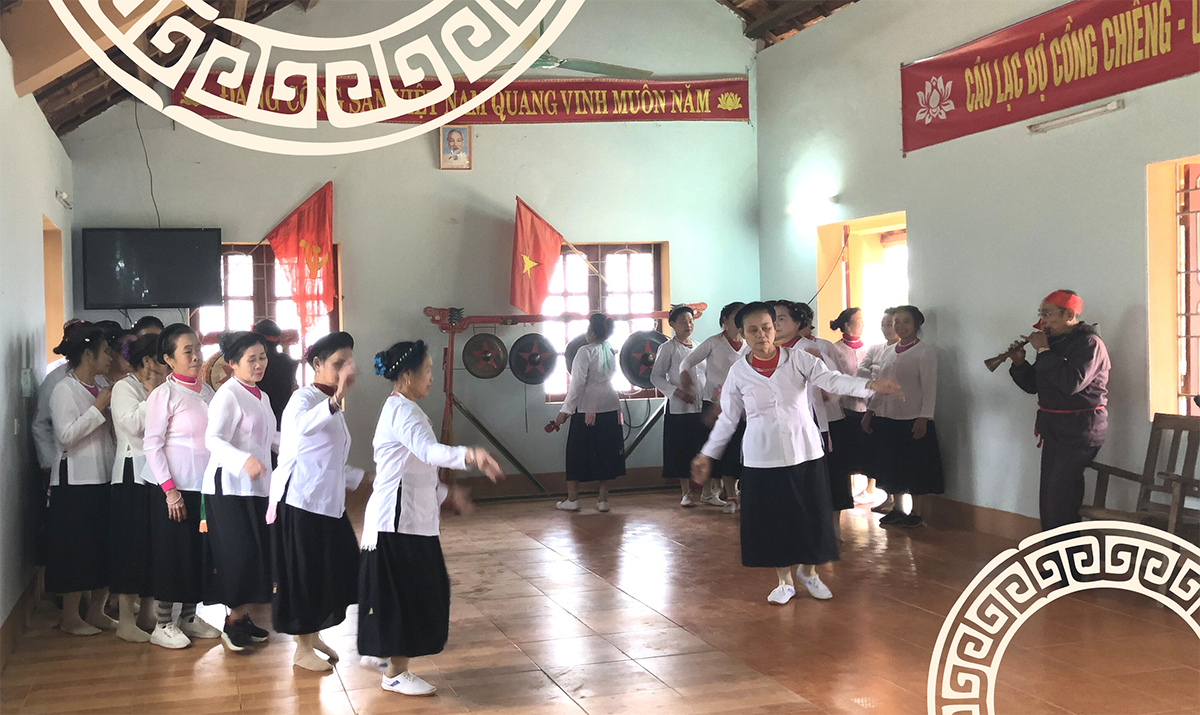
However, in some localities, this work is still being neglected. Therefore, it is necessary to further raise awareness among leaders, grassroots civil servants and people about the position, role, meaning and importance of this work. From there, focus on building and perfecting institutions and implementing laws on grassroots mediation, improving the capacity of state management officials on grassroots mediation work. Mobilize the participation of the entire political system to deploy solutions to effectively promote the role of prestigious people in the community (village elders, village chiefs, heads of residential groups, dignitaries, religious officials, etc.), and those who are knowledgeable about the law to participate in mediation work to professionalize the team of mediators.
Another issue to note: The mediation team is a self-governing organization of the people at the grassroots level, so the consolidation of mediation teams and mediators in the area needs to ensure the voluntary spirit of the participants and must be elected and trusted by the people in the area, avoiding structure and formality, leading to "many but not refined", violating democracy.
